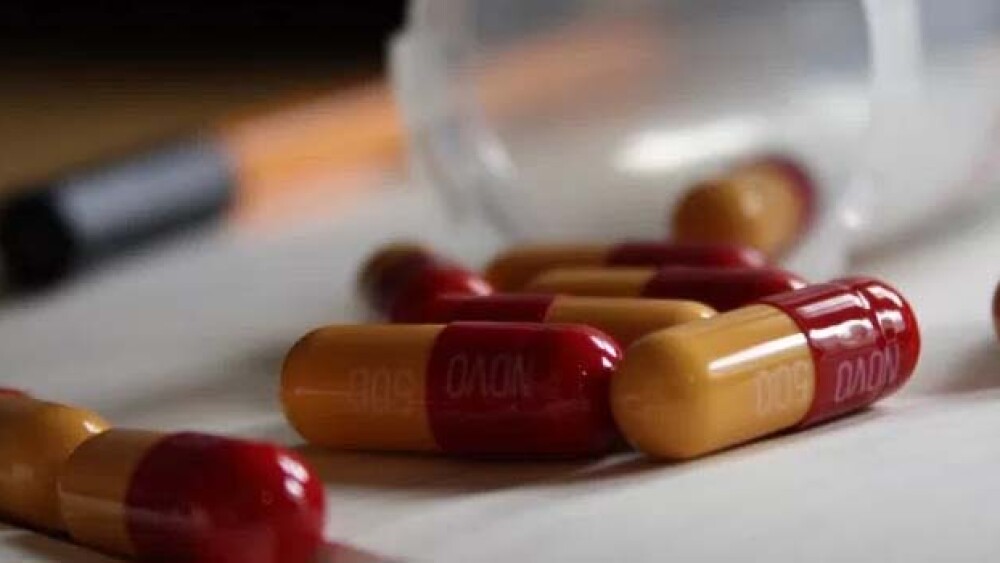Spark Therapeutics, with its partner Pfizer, published interim data from its Phase I/II clinical trial of a gene therapy for hemophilia B in The New England Journal of Medicine.
Philadelphia-based Spark Therapeutics, with its partner Pfizer, published interim data from its Phase I/II clinical trial of a gene therapy for hemophilia B in The New England Journal of Medicine.
The trial was of SPK-9001. The study was a cumulative follow-up of the first 10 adult males in the study 492 weeks after treatment. The mean steady-state factor IX activity was 34 percent of normal (range of 14 to 81 percent) after a single treatment. The annualized bleeding rate (ABR) was cut by 97 percent, from a mean rate of 11.1 events annually before treatment to 0.4 events per year after treatment. Factor IX concentrate use was cut by 99 percent.
No serious side effects were reported during or after infusion of the therapy. No recipients experienced thrombotic events or developed factor IX inhibitors. Two trial participants developed an asymptomatic and transient spike in liver enzymes that resolved after they were weaned off oral corticosteroids.
Hemophilia is a rare genetic bleeding disorder, where the clotting factor is deficient, resulting in taking longer for the blood to clot. It is almost exclusively seen in males. About one in 25,000 male births have hemophilia B, which is a deficiency in clotting factor IX. The current standard of care is recurrent intravenous infusions of either plasma-derived or recombinant factor IX. If ultimately successful, SPK-9001 would offer the possibility of a cure.
“People who live with hemophilia today face a lifelong need for vigilant monitoring and recurrent factor concentrate infusions to prevent spontaneous, potentially life-threatening bleeds and to protect their joints,” said Katherine High, president and head of Research and Development at Spark Therapeutics, in a statement. “The discipline required to execute the usual prophylactic regimen can exact a heavy toll on quality of life, and these regimens result in significant costs to patients, families and the health care system. The data suggest a one-time infusion of SPK-9001 has the potential to safely sustain factor IX coagulant activity level that may result in the termination of baseline prophylaxis factor infusions, significantly reduce bleeding, and nearly eliminate the need for exogenous factor IX concentrate infusions.”
The article is “Hemophilia B Gene Therapy with a High-Specific-Activity Factor IX Variant,” by Lindsey George et al.
Matthew Porteus, an expert in genetic blood diseases at Stanford University, wrote an editorial in the New England Journal of Medicine titled, “Closing in on Treatment for Hemophilia B.” Porteus called the study an “important milestone” and could spark a “renaissance” in gene therapy.
Preliminary data from the trial was reported at the American Society of Hematology (ASH) meeting last year. This new study has extended follow-up data. In a research note, analysts with Jefferies said SPK-9001 has “remarkable and positive efficacy and safety,” and that the editorial “speaks to the notable good things going on in gene therapy [for] hemophilia.”
Spark is not the only company working on bringing the first gene therapy for hemophilia to market. Other competitors include uniQure, BioMarin, Sangamo and Dimension Therapeutics. Spark and UniQure appear to be at the head of the pack, especially since Shire abandoned a hemophilia B program that was developed by Baxalta.
SPK-9001 will enter Phase III trials with Pfizer next year. The SPK-8011 program will proceed with more patients and lead toward a Phase III trial by 2019, according to Jefferies. SPK-8011 is a gene therapy program for hemophilia A.





